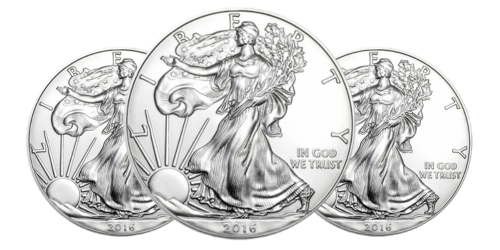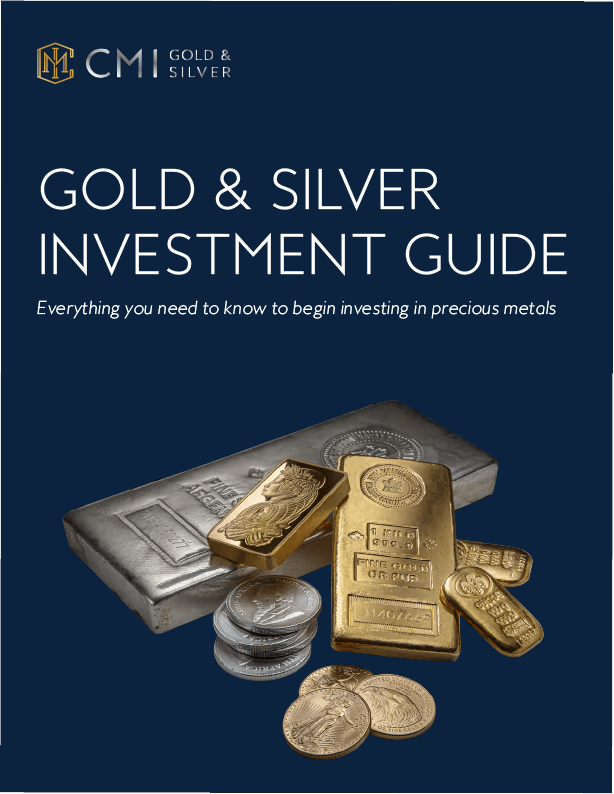With gold prices breaking $3,000 and economic uncertainty rising, precious metals have become a hot investment. Unfortunately, this has also brought out scammers looking to steal your money. Gold and silver scams happen more often than you might think, and they’re getting harder to spot.
Common Gold and Silver Scams to Watch Out For
As scammers get more sophisticated, you need to prepare and protect yourself from their tactics. Here’s what you need to know about the most common precious metals fraud schemes and how to protect yourself:
Price Manipulation Scams
Many gold and silver scams involve price tricks:
- Padded spot prices: Some dealers inflate the market price to hide their actual markup while claiming to charge “low premiums.”
- Bait and switch: A dealer advertises good prices but then claims those items are “sold out” and pushes you toward higher premium alternatives.
- Hidden fees: Watch for surprise charges at checkout – processing fees, handling costs, or “insurance” that wasn’t mentioned upfront.
Counterfeit Gold and Silver Products
Fake gold and silver products can fool many buyers. The DC Department of Insurance reports that these scams cost DC victims nearly $7 million in just one year.
- Gold-plated fakes: Scammers coat worthless metals with a thin gold layer. These counterfeits can look perfectly real.
- Fake purity marks: Counterfeiters stamp false marks (like “999” or “24K”) on lower-quality products.
- Weight tricks: Some fake coins contain tungsten or other heavy metals to mimic gold’s weight while using very little actual gold.
Phony Storage and Custodial Services
Some scams target investors who buy real gold but never actually get it:
- Fake storage facilities: Companies charge fees for gold supposedly held in secure vaults that don’t exist.
- The courier scam: This newer scam has robbed millions from investors. Victims are tricked by “tech support” or “federal agents” into buying gold bars for “protection,” then handing them over to fake government couriers. The Justice Department recently arrested five people for stealing $8 million from elderly victims this way.
High-Pressure Sales of Numismatic Coins
Telemarketers pushing overpriced “rare” or “collectible” coins run one of the most common precious metals investment scams. The Commodity Futures Trading Commission warns that these scammers target seniors and pre-retirement investors.
While standard gold bullion might sell for 5-7% over spot price, telemarketers often mark up coins by 50-100% or more, claiming they’re rare and will appreciate significantly.
Tips on Spotting Gold and Silver Scams
Here’s how to protect yourself from precious metals fraud:
- Check the dealer’s history: How long have they been in business? Do they have a physical address? Trusted dealers like CMI Gold & Silver have decades of experience.
- Get written details: Make sure you receive paperwork showing exactly what you’re buying, including price, fees, and delivery terms.
- Ignore cold calls and emails: If someone reaches out to you about a “limited time” gold opportunity, it’s almost certainly a scam.
- Watch for scare tactics: Many scammers use fear of economic collapse or inflation to push quick decisions. Take your time.
- Test what you buy: Learn basic ways to check gold and silver authenticity or have items professionally verified.
- Question big promises: No honest dealer can promise specific returns. If someone says your gold will double quickly, walk away.
Identifying Genuine Buying Opportunities
There are still plenty of legitimate ways to invest in precious metals:
- Stick with standard bullion: For most investors, regular gold bullion coins and bars from respected mints offer the best value.
- Know fair premiums: For most gold coins, expect to pay about 5-7% over spot price. Silver premiums run about 8-12%. Anything much higher should raise questions.
- Ask about buyback policies: Good dealers will buy back what they sell at fair market prices.
- Look for clear pricing: Honest dealers openly display current prices and don’t hide fees.
Strategies for Smart Gold and Silver Investing
When done right, buying gold and silver can strengthen your investment portfolio:
- Learn before you buy: Take time to understand different products and price factors.
- Buy what you can hold: For best security, many experts suggest buying metals you can personally take delivery of.
- Make regular purchases: Instead of trying to time the market perfectly, consider buying smaller amounts regularly.
- Mix gold and silver: These metals don’t always move in the same direction, so owning both can spread your risk.
- Deal with established companies: Choose dealers with long track records and good reputations.
Protecting Your Investment
Gold and silver have been valuable for thousands of years and remain important in many portfolios. By knowing what scams to watch for and working with honest dealers, you can safely invest in precious metals.
If you suspect you’ve encountered a scam, report it to the FTC, CFTC, or your state’s attorney general. You might save others from the same trap.
Call us today to learn how CMI Gold & Silver can help you invest safely with transparent pricing, authentic products, and peace of mind from one of America’s most trusted bullion dealers.
What precautions do you take to avoid investment scams? Join the conversation and reply with your comment below!
This is a three-part Scam series. Check out the other articles:
The Dark Side of Investing: How to Avoid Today’s Financial Scams
How to Spot the Spot: How Gold Dealers Hide Fees in the Spot Price







